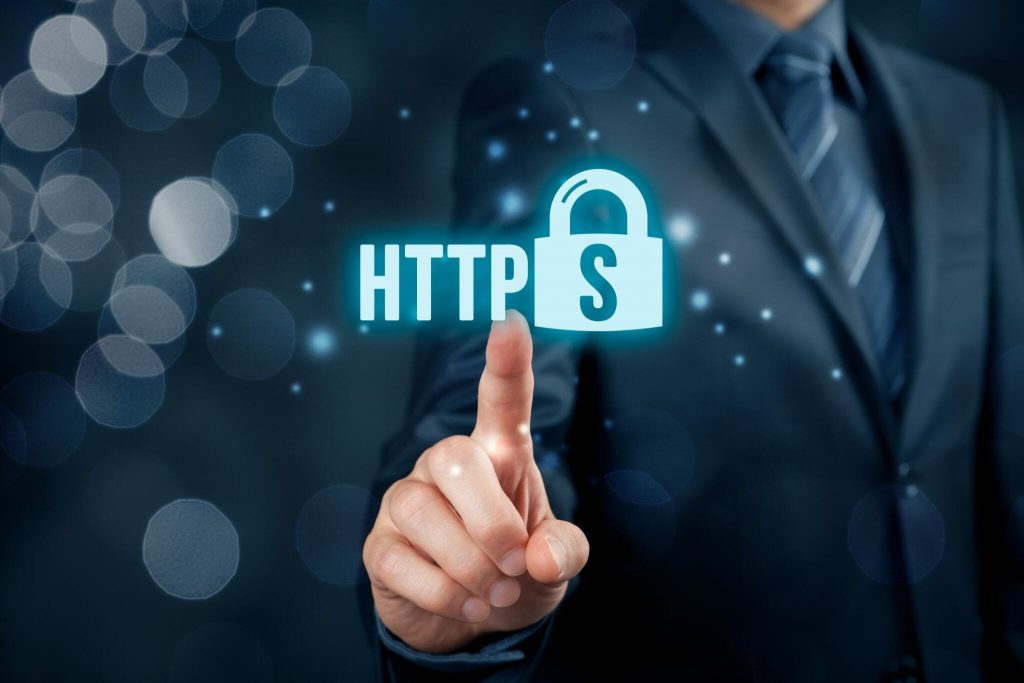In this ever-evolving internet sphere, security is on everyone’s mind. Therefore, making sure your site is secure is extremely important to gaining and maintaining customers. How does an SSL certificate play into that? Do you really need one? The short answer: Yes. But, let’s walk through the reasons why, and talk about what kind of SSL you need.
What is an SSL?
Most casual internet users don’t even know what a “Secure Sockets Layer,” or SSL, is. Why would they need to? It’s not something that is publicly visible on your site, but it does play a huge part in making your site secure and inviting to online visitors.
An SSL is an encryption of communications between the user and your website. If you have any fillable forms or if you capture personal data on your site, you should have an SSL. If your site offers e-commerce, you NEED an SSL certificate. Cybercrimes happen to all sizes of websites and not having an SSL certificate is a message to users that you are vulnerable to being hacked. Still, according to ahrefs.com, “A whopping 60% of the websites tested have no HTTPS whatsoever.”
When consumers searching on the internet see the green “HTTPS” before your domain, their level of trust instinctively increases. Conversely, when they see the gray information icon and “this site is NOT secure” notice, they become hesitant and suspicious about continuing through to your site. The consumer develops an impression of your brand within a fraction of a second and you want to ensure nothing prevents them from visiting your site.
How can an SSL help me?
The SSL not only protects your customers’ data from breach, but it has also been an SEO ranking factor to Google since 2014. Even if your site has no fillable forms, search features, or e-commerce, the SSL is still a beneficial means to increase your likelihood of being found in online searches. Who doesn’t want that?
The two main forms of SSL certificates are OV (Organizationally Validated) and EV (Extended Validation). EV certificates go through a more stringent process than OVs; we would recommend using them for e-commerce, financial, and medical sites, as well as any other site that holds sensitive data.
Insights from Google
Google has seemingly left the days of large algorithm changes behind it and has adopted a more transparent and gradual approach. Google has communicated with the digital community about changes it finds to be of increasing importance. For example, before Google’s recent announcement of officially going “mobile first” by July 2018, it revamped the Google page speed insights tool and reiterated the importance of mobile speed. Keep an eye out for further pushes from Google to encourage making your site HTTPS, especially in the Chrome browser.
Most recently, Google Analytics has been notifying users of updates to their GDPR that will take effect before May 25, allowing users more control on how long data is retained on Google servers. You may see this alert pop up to notify you of this change:
“[Action Required] Important updates on Google Analytics Data Retention and the General Data Protection Regulation (GDPR)”
Having an SSL means an increase in customer confidence, combined with an increase in position on search engine results pages. This leads to more clicks, more qualified traffic, more conversions and more customers. A.K.A., everything a growing business wants!
Still have questions? Give us a call and we can consult with you to make sure you are getting the most out of your website!

